
SAFETY™ ACCREDITATION PROGRAM
Become an Accredited SAFETY™ Practitioner
Master the Science of Psychological Safety and Elevate Your Impact as a Coach, Trainer or People & Culture Professional—In Just 8 Weeks
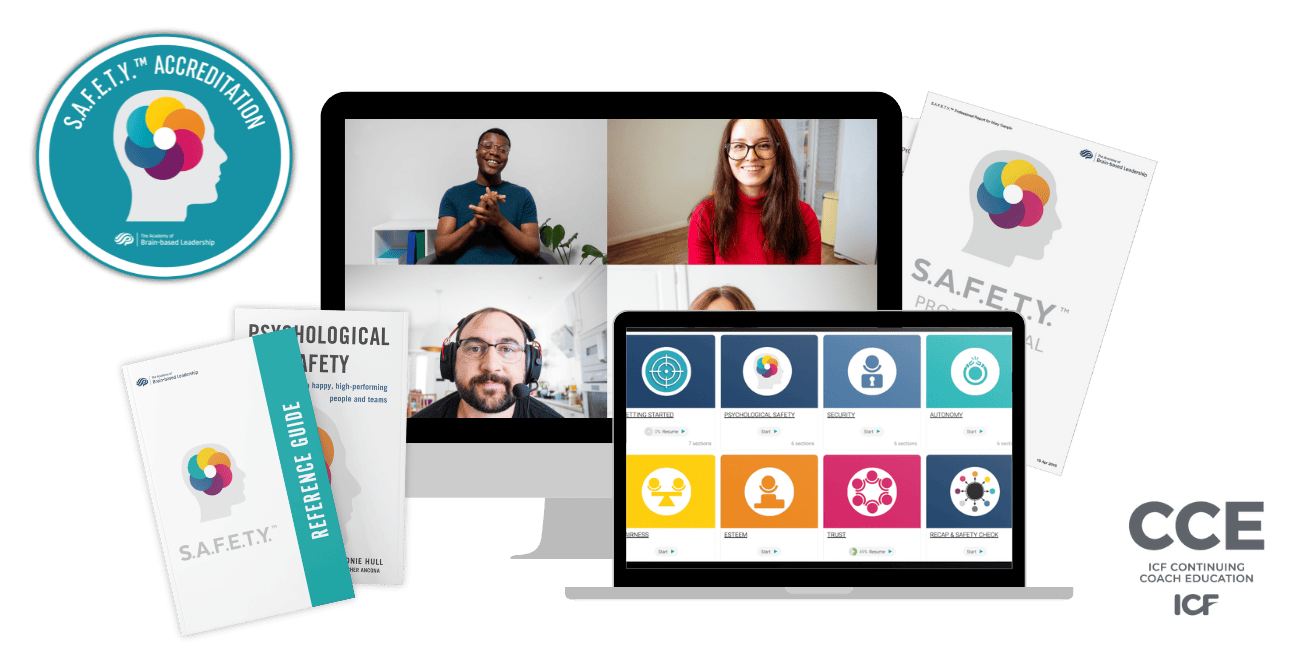
INTERNAL OR EXTERNAL COACHES, TRAINERS & CHANGE AGENTS
Get certified in the neuroscience-based SAFETY™ approach that helps individuals & teams build trust, reduce friction, and unlock performance—without all the complex theory.
Does this sound familiar?
- You're working with a leader who keeps hitting invisible walls—but you can’t figure out why.
- You want to bring neuroscience into your practice, but it feels complex or inaccessible.
- You’re tired of surface-level coaching and want a deeper, evidence-based toolkit.
If you're nodding yes, you’re not alone.
In today’s workplaces, people are burnt out, disengaged, and operating in survival mode.
Mindset shifts and frameworks can only take your clients so far if their brain doesn’t feel safe.
That’s where we come in.
What to expect on the 8-week journey
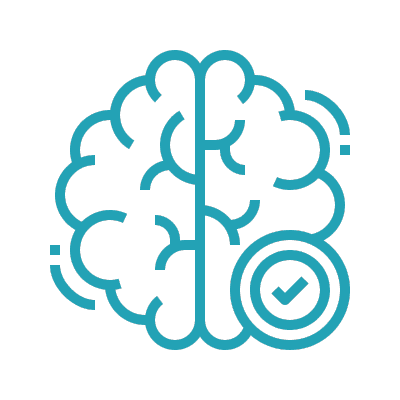
Research-based Content

Access to the Experts
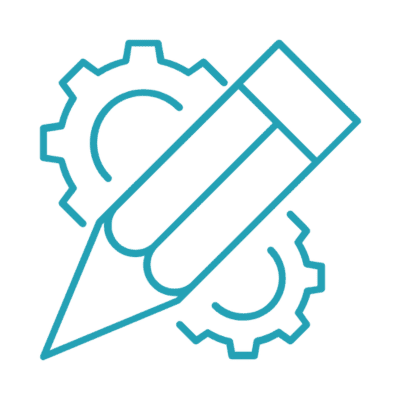
Skills, Tools & Guides to Teach Psychological Safety
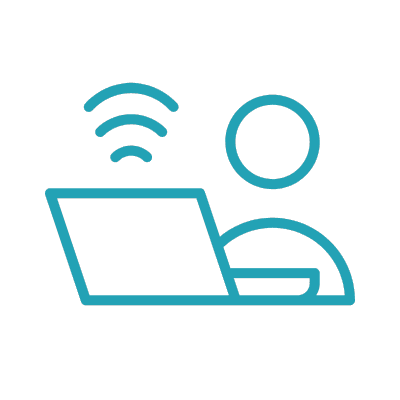
Blended, Online Learning
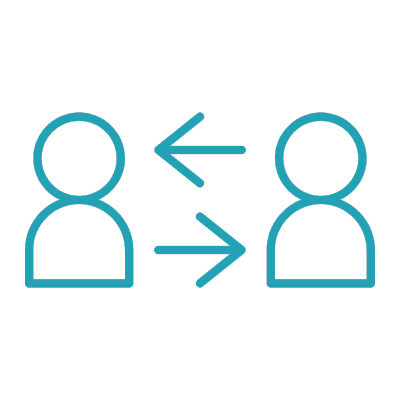
Peer Learning & Practice

Accreditation Status
OUR METHODOLOGY
Backed by Neuroscience. Built for Practitioners.
The SAFETY™ Model was developed by co-authors of the book Psychological Safety: The Key to Happy, High-Performing People and Teams - renowned Neuroscientist Dr. Dan Radecki, and CEO, Leonie Hull.
It’s used by professionals across HR, leadership, training and coaching to measure and improve psychological safety at its core.
You don’t need to be a neuroscientist. We’ve made it practical and actionable—just add your existing expertise.
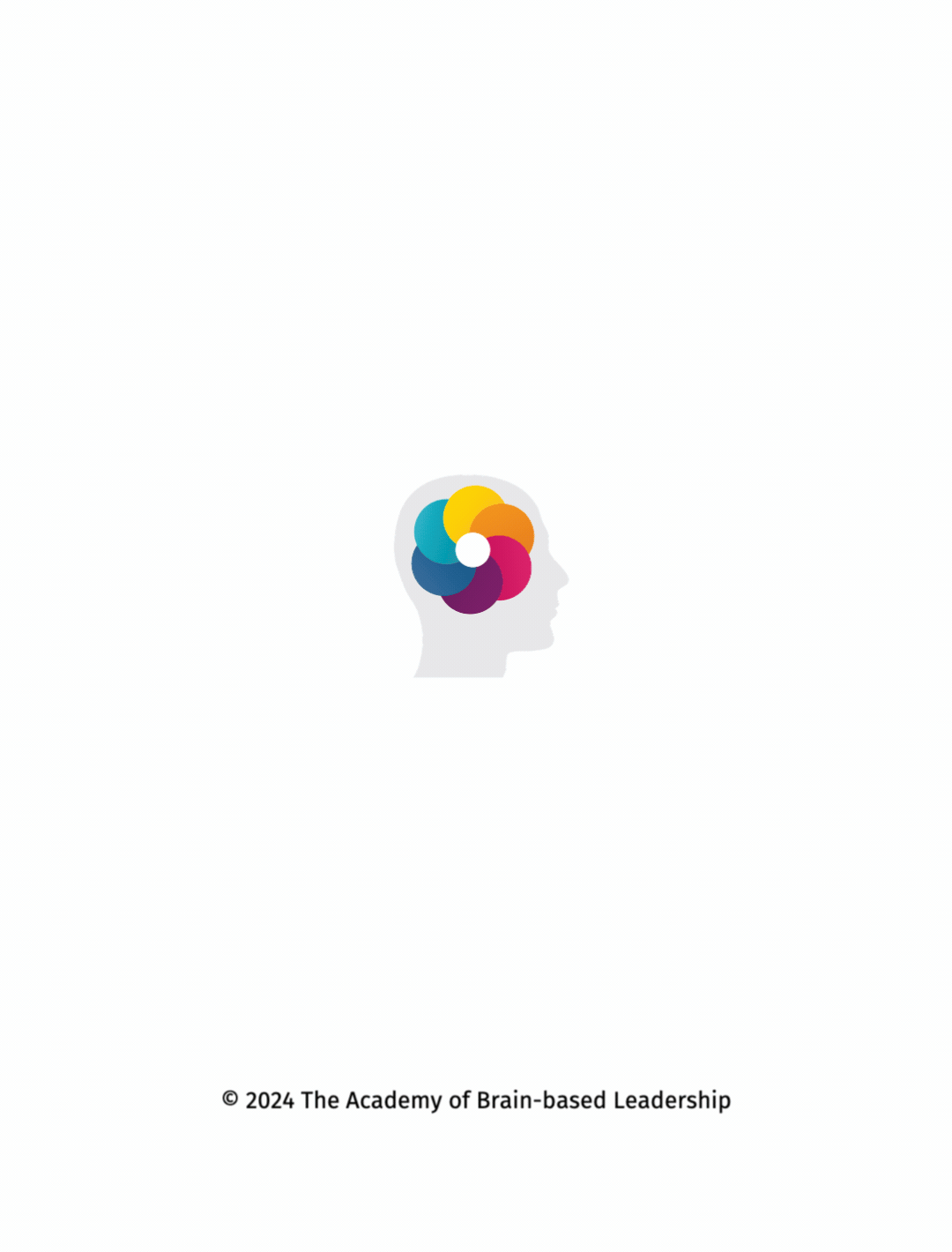
Benefits of Getting SAFETY™ Accredited
Your Accreditation Includes:
✔ Your SAFETY™ Practitioner Certification
✔ SAFETY™ Self-Assessment & Debrief
✔ 8-week virtual program: self-paced + live Q&A sessions
✔ 28 ICF CCE hours
✔ SAFETY™ Toolkit: reports, templates, slides & more
✔ 1-Year Alumni Access with exclusive events and content
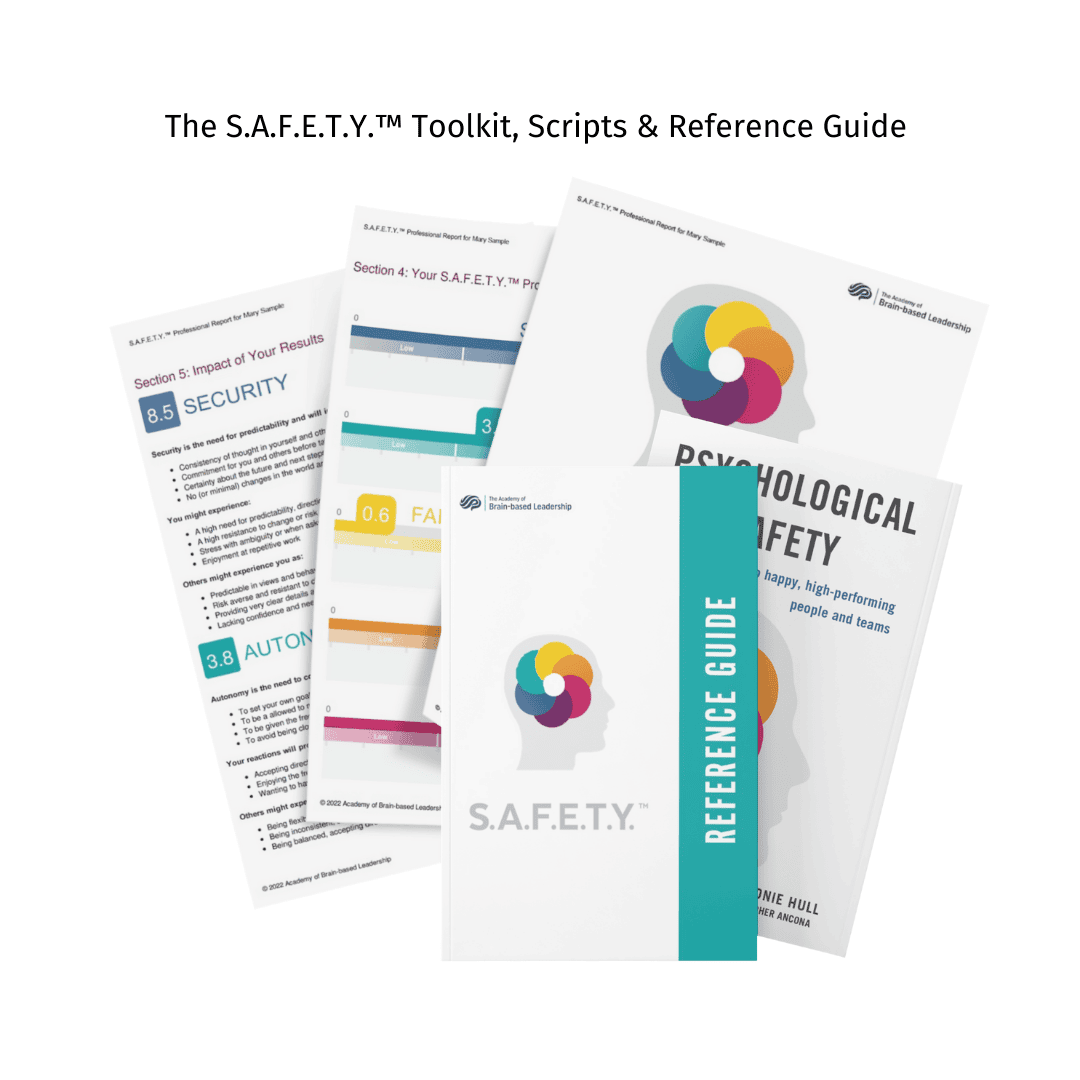
At the end of the accreditation, you will be able to:
- Explain Psychological Safety and the research behind it
- Explain the brain fundamentals that influence our psychological safety
- Explain the nonconscious triggers that drive behavior (S.A.F.E.T.Y.™ model)
- Explain the attributes of high and low domain scores
- Explain the S.A.F.E.T.Y.™ profile report and the impact of the scores
- The top down (N.E.T.S.™) and bottom up (T.R.A.I.N.™) approaches to managing triggers
- Debrief the report in order to generate self awareness and insights
- Have a next steps action plan for how to embed and use this new learning
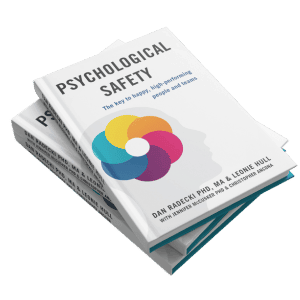
The Learning Journey:
- Module 1: Orientation and The Learning Brain
- Module 2: Psychological Safety Fundamentals
- Module 3: S.A.F.E.T.Y.™ Model and Assessment
- Module 4: S.A.F.E.T.Y.™ Domain Attributes
- Module 5: Top Down Trigger Management
- Module 6: Bottom Up Trigger Management
- Module 7: The Debrief Conversation
- Module 8: Conducting the Debrief
- Module 1: Orientation and The Learning Brain
- Module 2: Psychological Safety Fundamentals
- Module 3: S.A.F.E.T.Y.™ Model and Assessment
- Module 4: S.A.F.E.T.Y.™ Domain Attributes
- Module 5: Top Down Trigger Management
- Module 6: Bottom Up Trigger Management
- Module 7: The Debrief Conversation
- Module 8: Conducting the Debrief
What your clients get:
Increased awareness and skills to:
- Nurture their psychological safety and wellbeing
- Mitigate their biases to improve decision making
- Manage their triggers and stress for improved health
- Communicate their needs to deepen relationships
- Embed new habits and behaviors to improve overall effectiveness
How your clients benefit:
- Greater self-awareness and emotional intelligence
- Improvement in mental and physical health and wellbeing
- More positive exchanges, collaboration and better conflict resolution
- Enhanced focus, motivation and productivity
- Deeper and more connected relationships
- Improved happiness, satisfaction and performance
Weekly Learning Commitment:
The course runs for 8 weeks and includes a blend of online classes, peer learning & practice and self-paced study.
The average time commitment each week is approximately 3-4 hours, however some weeks require up to 5 hours. This includes:
- Recorded webinar (30-60 mins)
- Readings, activities and resources (10 mins)
- Online knowledge quiz (10 mins)
- Content review & practice (30 mins)
- Delivery practice & feedback (60 mins)
- Peer engagement and activities (10 mins)
- Weekly live Q&A webinar with instructors (30 mins)
- Final assessment: Observed 90-minute live-virtual debrief
Ongoing Engagement Commitment:
To achieve and maintain your accreditation status learners are required to:
- Sign and adhere to the Service & Licensing Agreement terms
- Complete all program activities
- Successfully conduct a live debrief (assessor observed)
- Maintain annual alumni membership (USD299). First year is included in your tuition fees.
Meet Your Trainers

Dr Dan Radecki PhD, MA
Dr Dan Radecki PhD, MA
CO-FOUNDER & CHIEF SCIENTIFIC OFFICER
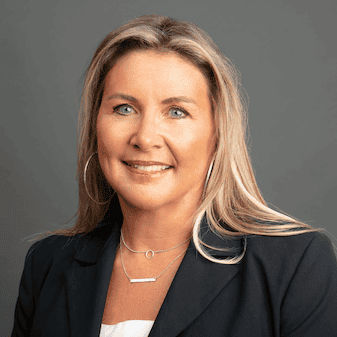
Leonie Hull
Leonie Hull
CO-FOUNDER & CEO


About The Academy of Brain-based Leadership
Not Ready to Enroll?
Join our mailing list and we'll let you know when our next course commences.
FAQ's
Interested in learning more?

For Organizations
For Individuals
© 2024 Academy of Brain-based Leadership